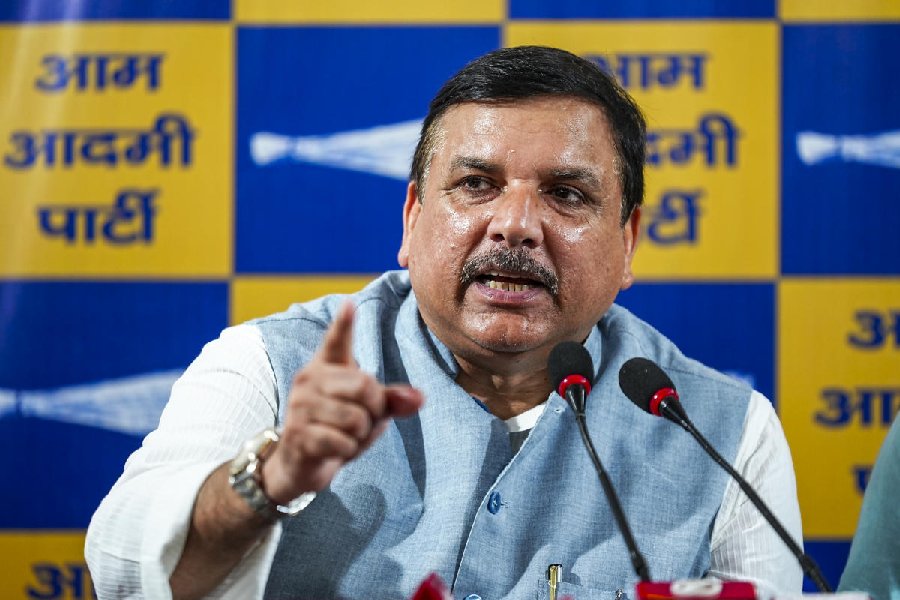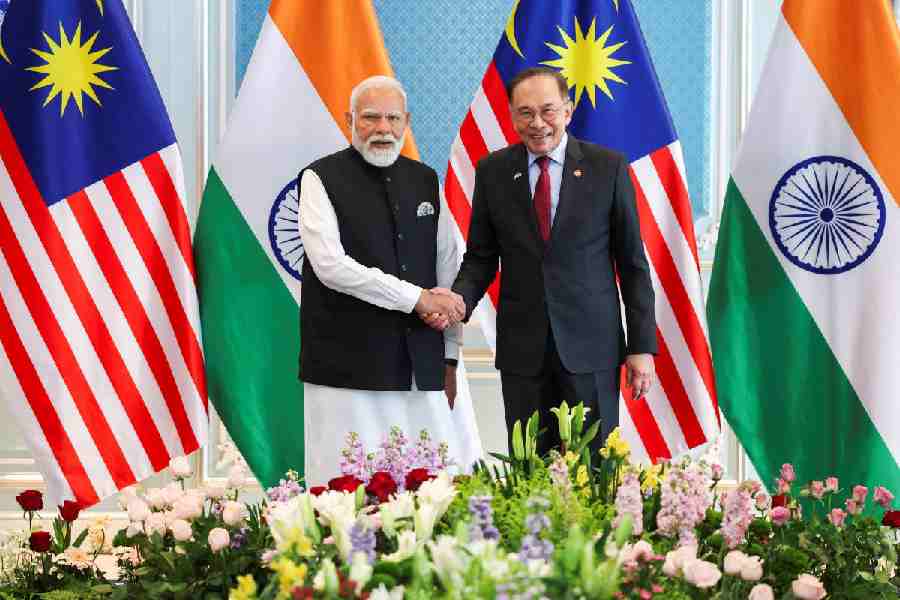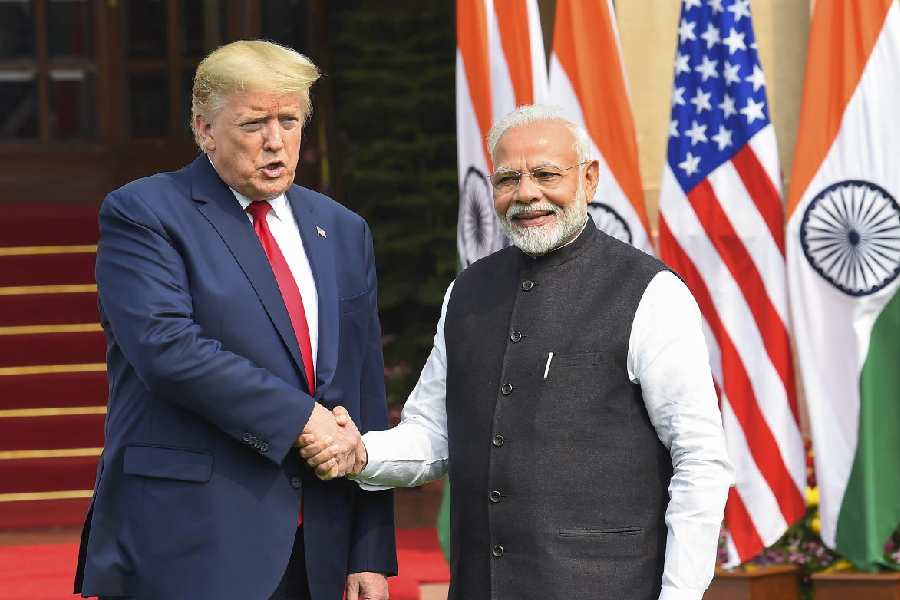 |
Out of Bengal
Bengalis know Bani Basu, of course, but now the writer is all set to find her place in other parts of the country too. Katha, the publishing house that focuses on regional writing and translations,has just come out with an English version of her Bengali book Kharap Chele. Called Dark Afternoons and translated by Nandini Guha, a Delhi-based professor, the book was released in the capital last week. The book launch was a literary exercise — with passages read out by theatre actor Ashish Paliwal. “Our focus is to touch non-Bangla readers,” says a Katha member. “We want to give them a dose of Bani Basu.” As medicines go, this one couldn’t have been sweeter.
 |
Ghost who talks
Vikram Bhatt — a junior member of the clan that’s always in the news — has just added his own bit to the news-making grind. The director has written a coffee-table book that was released in Mumbai recently. Called 1920, it is based on the theme of a new Bhatt film set in that period. The background is Rajasthan, Mussoorie and Mumbai when it was still Bombay — and the film traces the love story of an Indian boy and a British girl. The audience, says producer Surendra Sharma, can expect a bone-chilling experience — complete with horse carriages moving in the mist and an old haunted castle. “There is only one way to make a film and that is to believe in an idea and backing it with everything you have got,” he says about the film that stars two new talents — model Rajneesh Duggal and Adah Sharma (picture below). The film-makers believe that its music — composed by Adnan Sami — will touch a chord too. Pandit Jasraj tops the list of singers which includes Lata Mangeshkar, Asha Bhonsle, Kailash Kher and Shubha Mudgal. Play on, Bhatt.
 |
Making a beeline
You can always be a bit waspish about telly actor Manav Gohil, but for director Dharmesh Darshan, he is just what the script for his new film ordered. The film is called Bhanvraa — The Love Bee Stings! — no, our film-makers can’t be accused of being unimaginative when it comes to names —and Darshan is going ga-ga about his new hero. Apparently, the romantic thriller required a man who would portray the perfect metrosexual —sensitive, vulnerable yet physically strong and with a heart of gold! “I wanted some fresh faces for Bhanvraa. Someone whom I could call Mr Clean,” says Darshan. Good for the duo — and let’s hope there is no sting in the tail along the way.
 |
Capital Das
Remember the man who climbed the Everest just because? Nandita Das is scaling mountains, too — but in her case, it’s be-cause. Das is following in the footsteps of her mainstream counterparts, Aamir Khan and Ajay Devgan, who have marked their presence behind the screen. But Das’s causes continue. The actress, who recently starred in Adoor Gopalakrishnan’s Nallu Pennungal (Four Women), turns director with Firaaq: In Such Times. The film deals with the aftermath of the Godhra violence and its impact on individual lives and human relationships. The five, partly interconnected stories within the film unfold exactly a month after the mayhem in Gujarat. A portion of the film was screened in the capital this week. The film stars heavy-hitters Naseeruddin Shah, Deepti Naval, Paresh Rawal and Raghuveer Yadav. Das has also written the story, and her first directorial foray is set for an October release. Here’s hoping for some telling cinema.
Lingo Bingo
 |
Manohar Shyam Joshi gets between the covers again. Only this time it’s in translation. T’ta Professor by the late Hindi novelist and scriptwriter has been translated into English by prominent literary critic Ira Pande and brought out by Penguin. “I have always admired Joshi’s work and his marvellous use of satire. This translation is both a tribute to his genius and an attempt to bring his work to readers who do not read Hindi,” says Pande. A fan of gentlemanly British manners, T’ta, “a Dubble MA” school teacher in Kumaon, is in awe of the white man and his language. While chronicling his vanity in detail Joshi develops a satire about colonial baggage. And the dig at the English language, its place, purpose and glorified status is all too evident. “I feel that the English media place an undue emphasis on English writing when speaking of Indian literature. I feel some of the finest writing in the country is being done in our regional languages,” signs off Pande. Language lessons, anybody?











